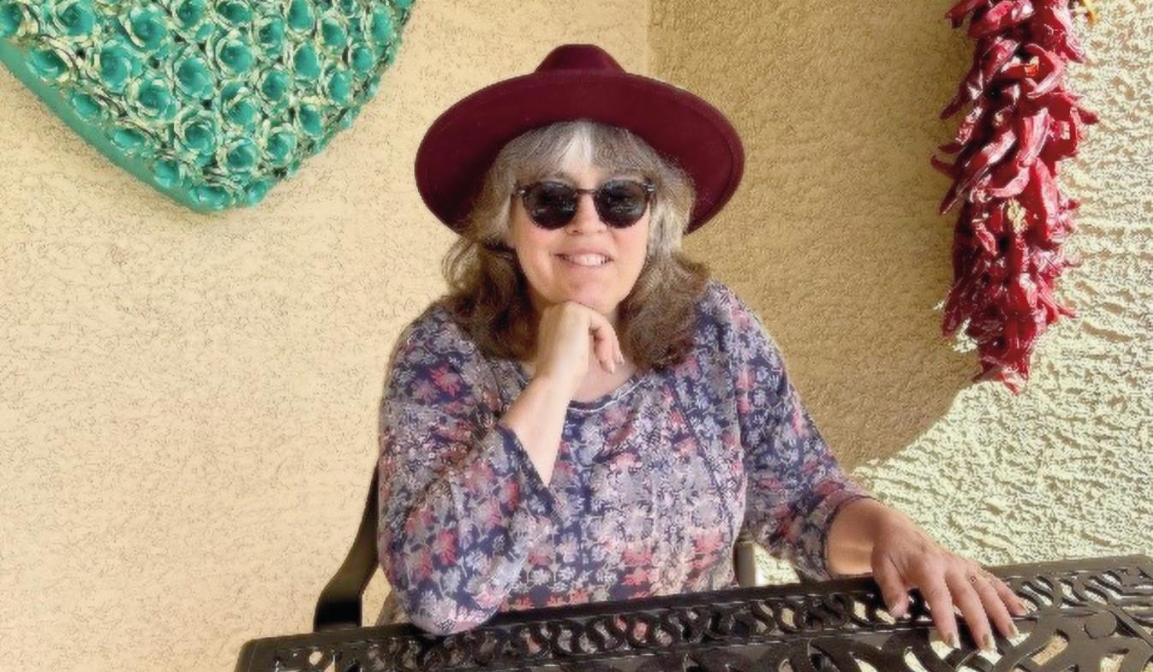
LEADING BY EXAMPLE:: Dr. Elisheva Levin; "Growing awareness of autism spectrum disorder has led to a rise in diagnoses among children, but for adults, getting a diagnosis remains a challenge."
"I spent a lot of my time as a young girl daydreaming," she says.1 "I spent my young teenagerhood imagining that I was in fantasy worlds and not in the world that I was in, because the world I was in was so painful. When I got my diagnosis, I was actually relieved. All of a sudden, I could understand my life and my problems in a very different way, because I understood that my brain works differently."
Now, Dr. Levin, Ph.D., devotes her career to disability policy. In her work as a senior research scientist, at the Center for Development and Disability in the University of New Mexico School of Medicine, she is bringing autistic representation to the field and using public health data to provide research that benefits people with autism and other developmental disabilities.
THE WEIGHT OF NOT KNOWING
Like Dr. Levin, many autistic people live much or all of their whole lives, without a formal diagnosis. Growing awareness of autism spectrum disorder (ASD) has led to a rise in diagnoses among children,2 but for adults, getting a diagnosis remains a challenge. Autism Speaks' Adult Autism Diagnosis Tool Kit,3 written by a team of autistic adults, can help people who suspect they may have autism, identify the signs and learn about next steps.
"There are approximately 5.4 million autistic adults in the U.S., yet the autism field's understanding of aging across the lifespan is exceedingly low," says Andy Shih, chief science officer at Autism Speaks. "It is increasingly clear that there is a large population of autistic adults who were not diagnosed in childhood and who were
frequently misdiagnosed with other conditions. Our recent Thought Leadership Summit on Autism and Aging4 revealed that this has resulted in a critical absence of research and healthcare professionals capable of providing the specialized care needed for this unique population."
Many adults who are not formally diagnosed, do not realize that some of the things that make them unique are related to undiagnosed ASD. Some learn to navigate their differences very well, achieving major milestones like being in relationships or building successful careers. Others spend their lives feeling out of place, struggling to succeed in certain areas, or masking their autism to fit in.
According to a Drexel report,5 autistic adults experience higher rates of co-occurring mental health conditions than their peers, including anxiety (28%), bipolar disorder (25%), ADHD (23%) and depression (22%).
"From talking to lots of adults diagnosed in adulthood, there's good reason to believe that co-occurring anxiety and depression, in particular, could be a result of spending many decades of life feeling stigmatized, and not understanding the difficulties that they had in certain areas," says Dr. Vanessa Bal, M.Sc., Ph.D., Karmazin & Lillard chair in adult autism and associate professor at the Graduate School of Applied & Professional Psychology at Rutgers University. 6 "The uncertainty of not having an autism diagnosis as a way to understand their experience could contribute to higher rates of these conditions."
- Autism Speaks. Dr. Elisheva Levin shares her experience with masking and late diagnosis. 2023. https://www.autismspeaks.org/blog/dr-elisheva-levin-shares-her-experience-masking-and-late-diagnosis
- Maenner MJ, Warren Z, Williams AR, et al. Prevalence and Characteristics of Autism Spectrum Disorder Among Children Aged 8 Years — Autism and Developmental Disabilities Monitoring Network, 11 Sites, United States, 2020. MMWR Surveill Summ 2023;72(No. SS-2):1–14. DOI: http://dx.doi.org/10.15585/mmwr.ss7202a1
- Autism Speaks. Adult Diagnosis Tool Kit. 2023. https://www.autismspeaks.org/adulttoolkit
- Autism Speaks. Autism Speaks hosts the Thought Leadership Summit on Autism and Aging. 2022. https://www.autismspeaks.org/science-news/autism-speaks-hosts-thought-leadership-summit-autismand-aging
- Rast, Jessica E., Garfield, Tamara, Roux, Anne M., Koffer Miller, Kaitlin H., Hund, Lisa M., Tao, Sha, Kerns, Connor M., Rosenau, Kashia A., Hotez, Emily, Anderson, Kristy A., Shattuck, Paul T., and Shea, Lindsay L. National Autism Indicators Report: Mental Health. Philadelphia, PA: Life Course Outcomes Program, A.J. Drexel Autism Institute, Drexel University, August 2021.
- Autism Speaks. Expert Q&A: Dr. Vanessa Bal discusses gaps in mental health care for autistic adults. 2023. https://www.autismspeaks.org/blog/expert-qa-dr-vanessa-bal-discusses-gaps-mental-healthcare-autistic-adults